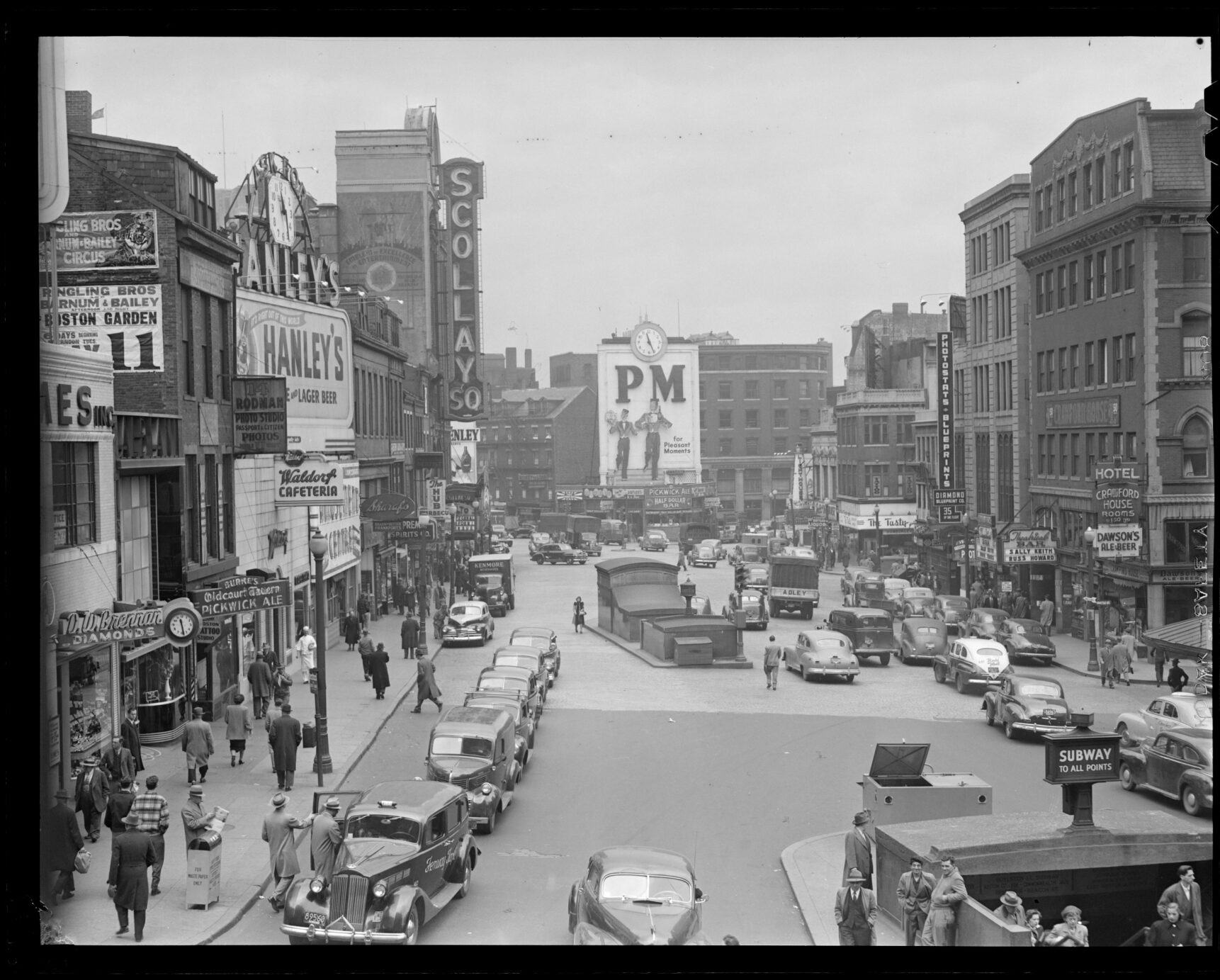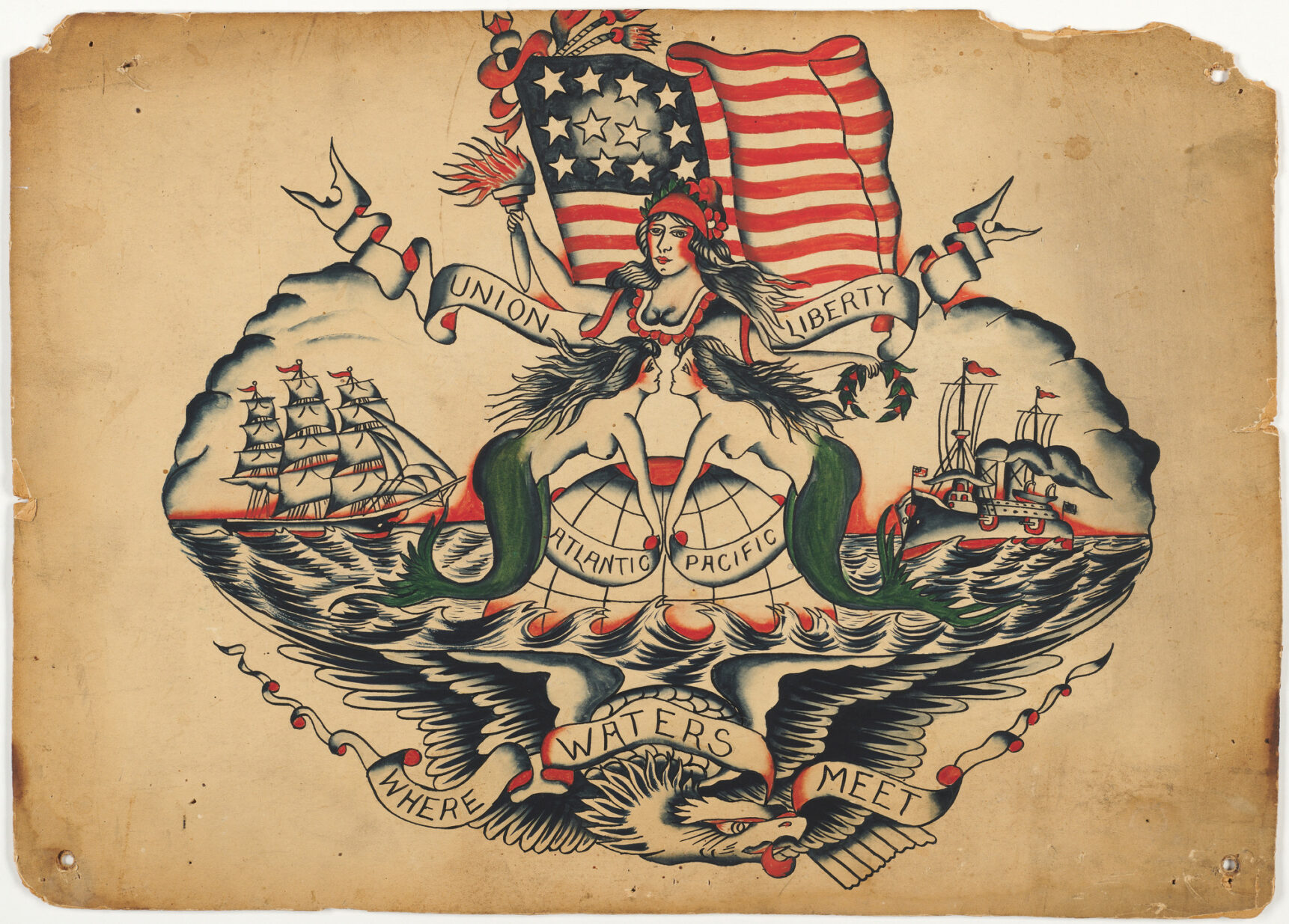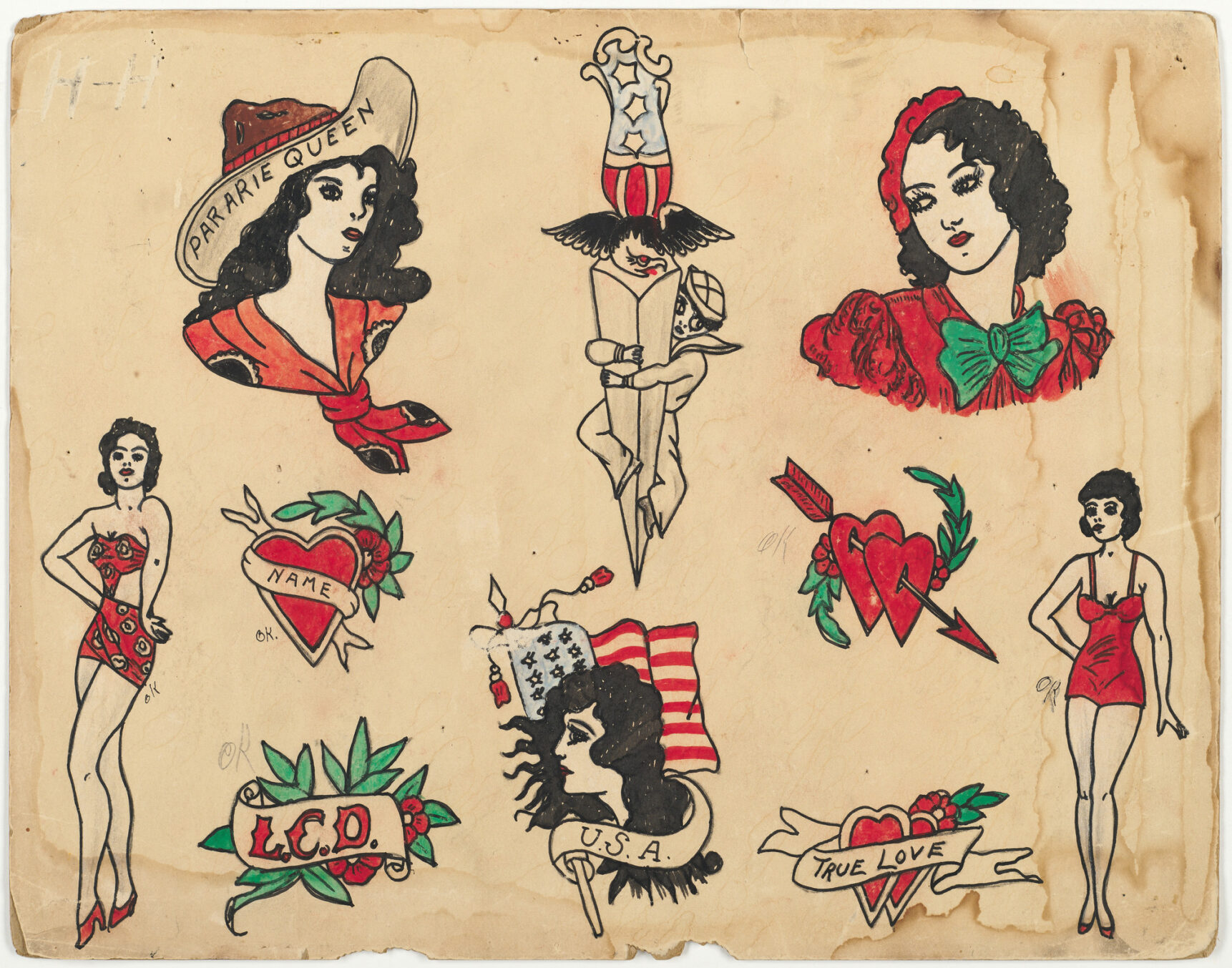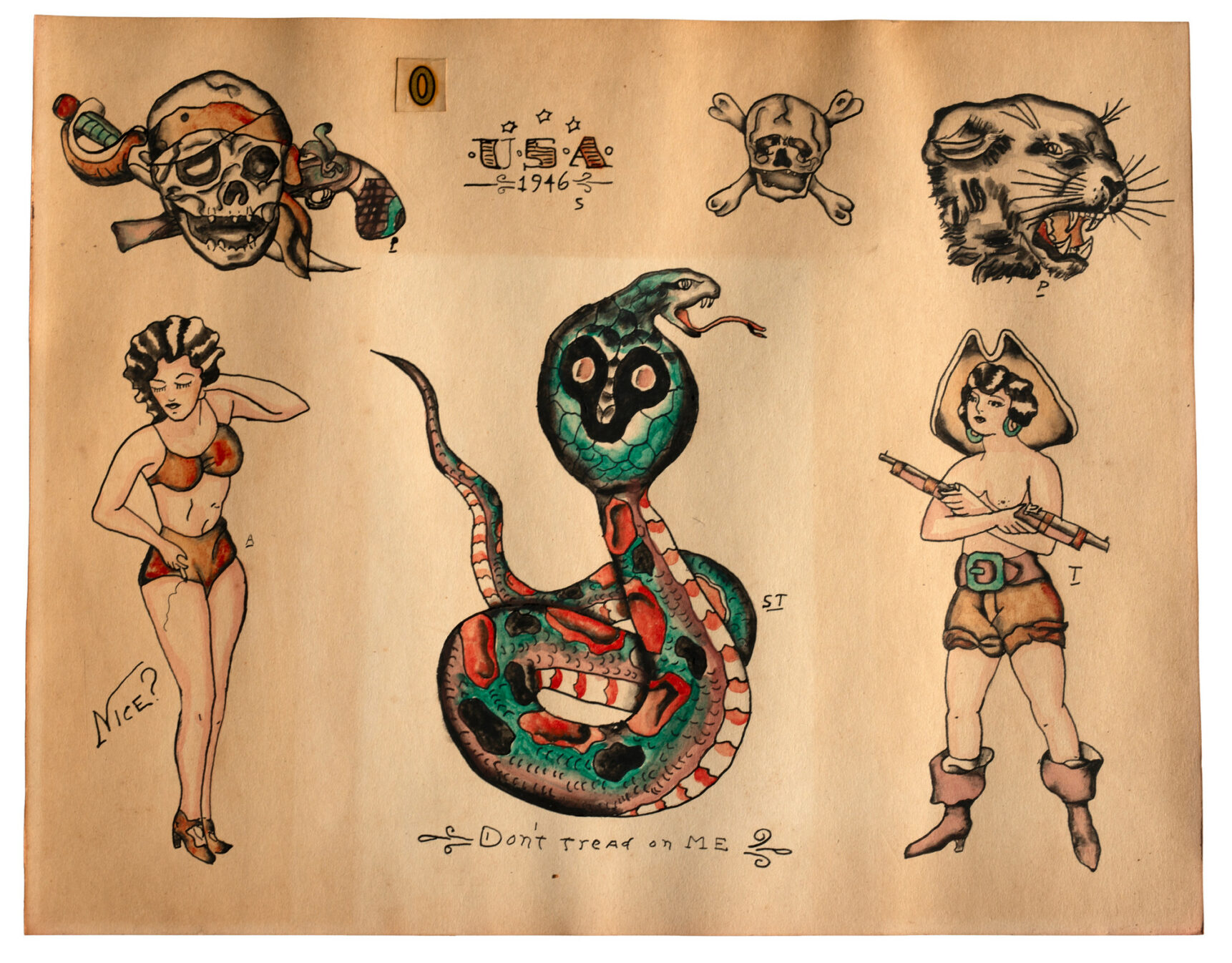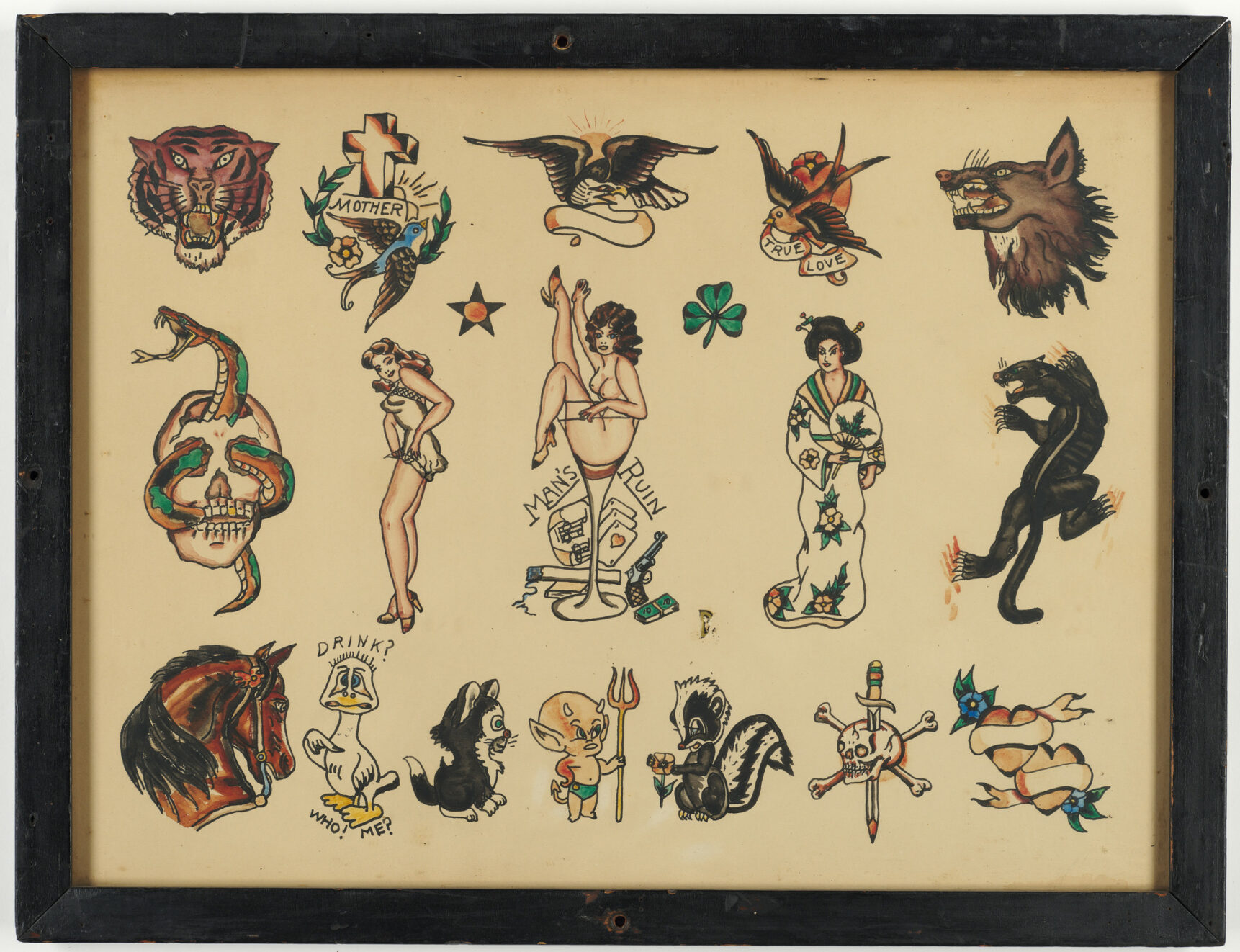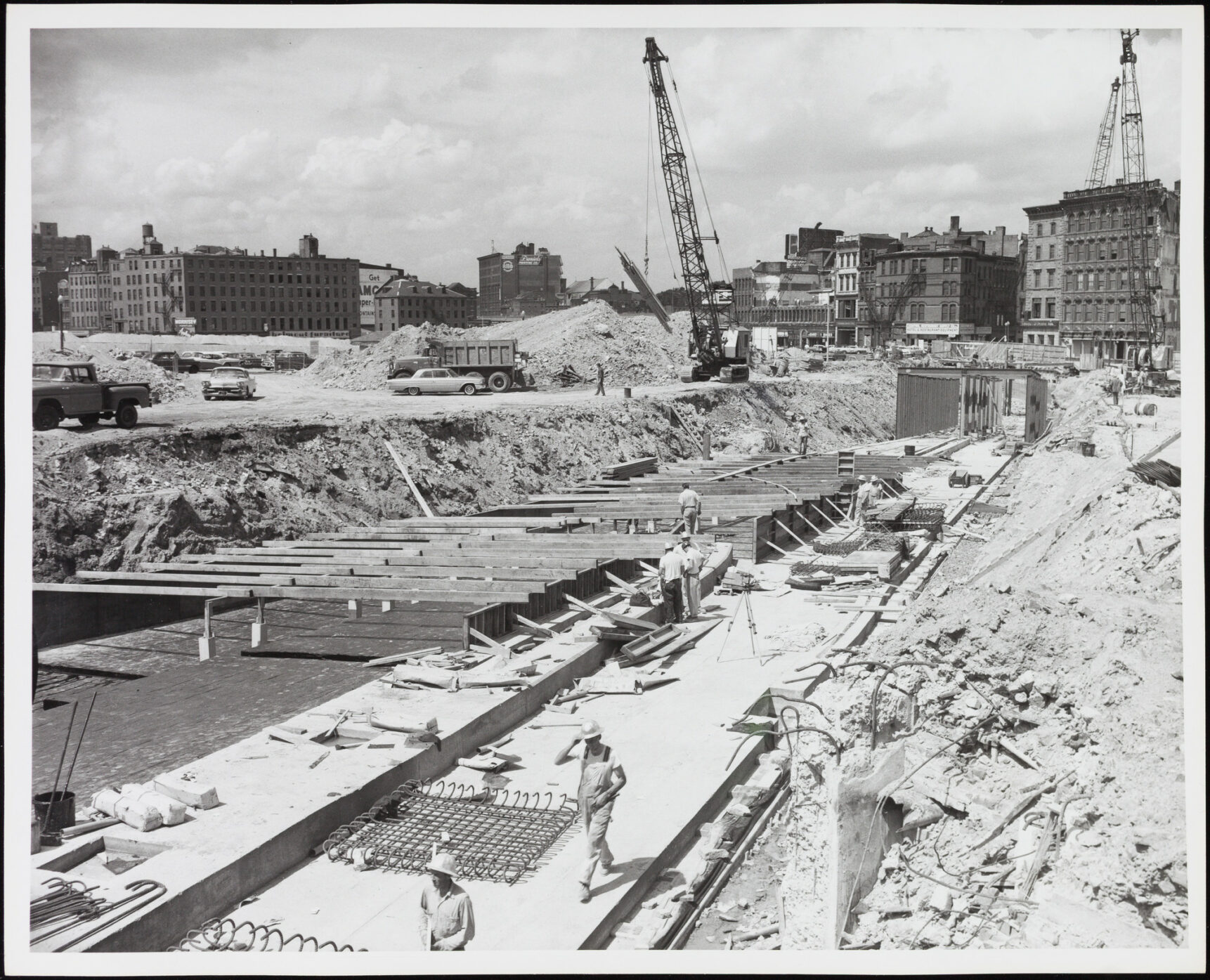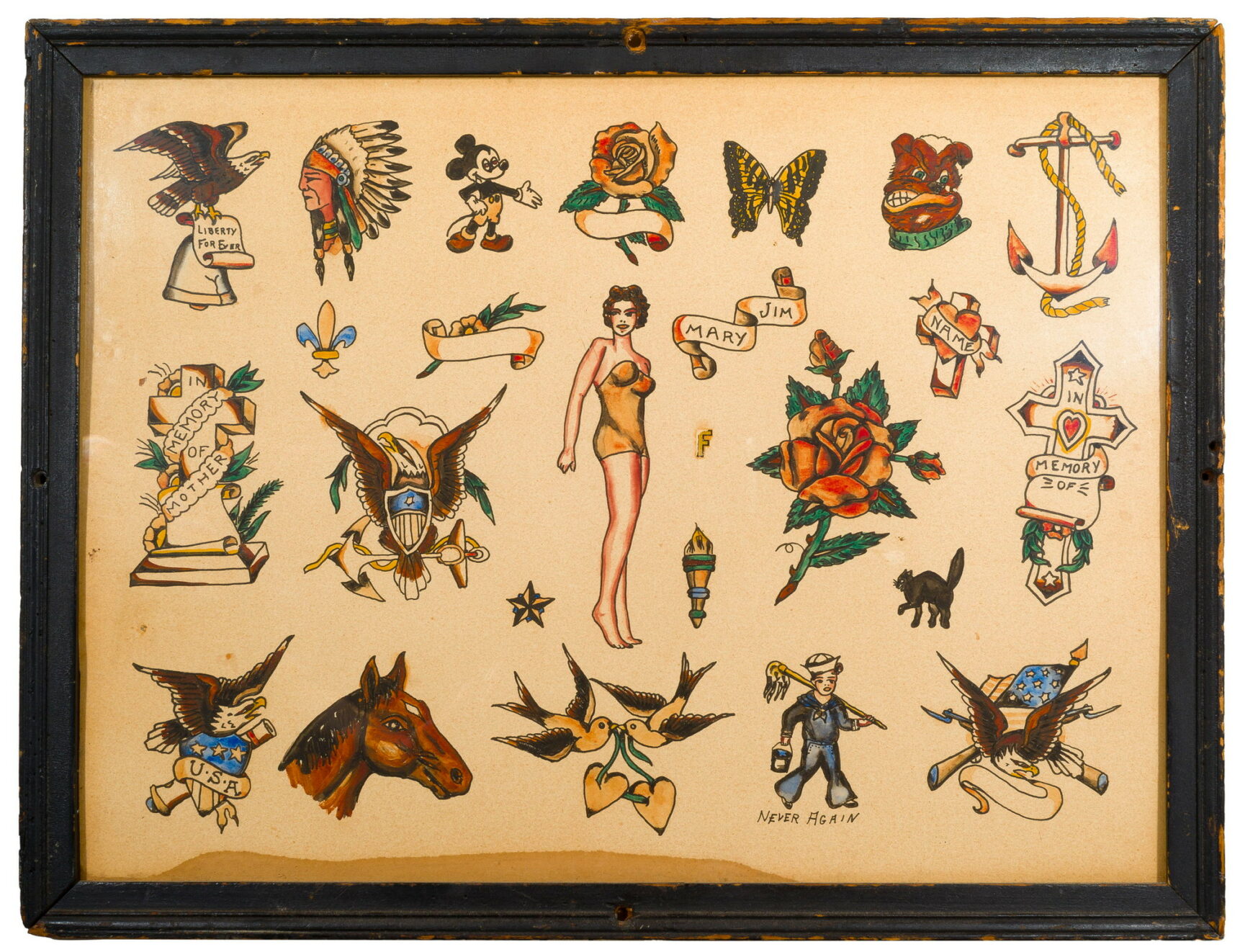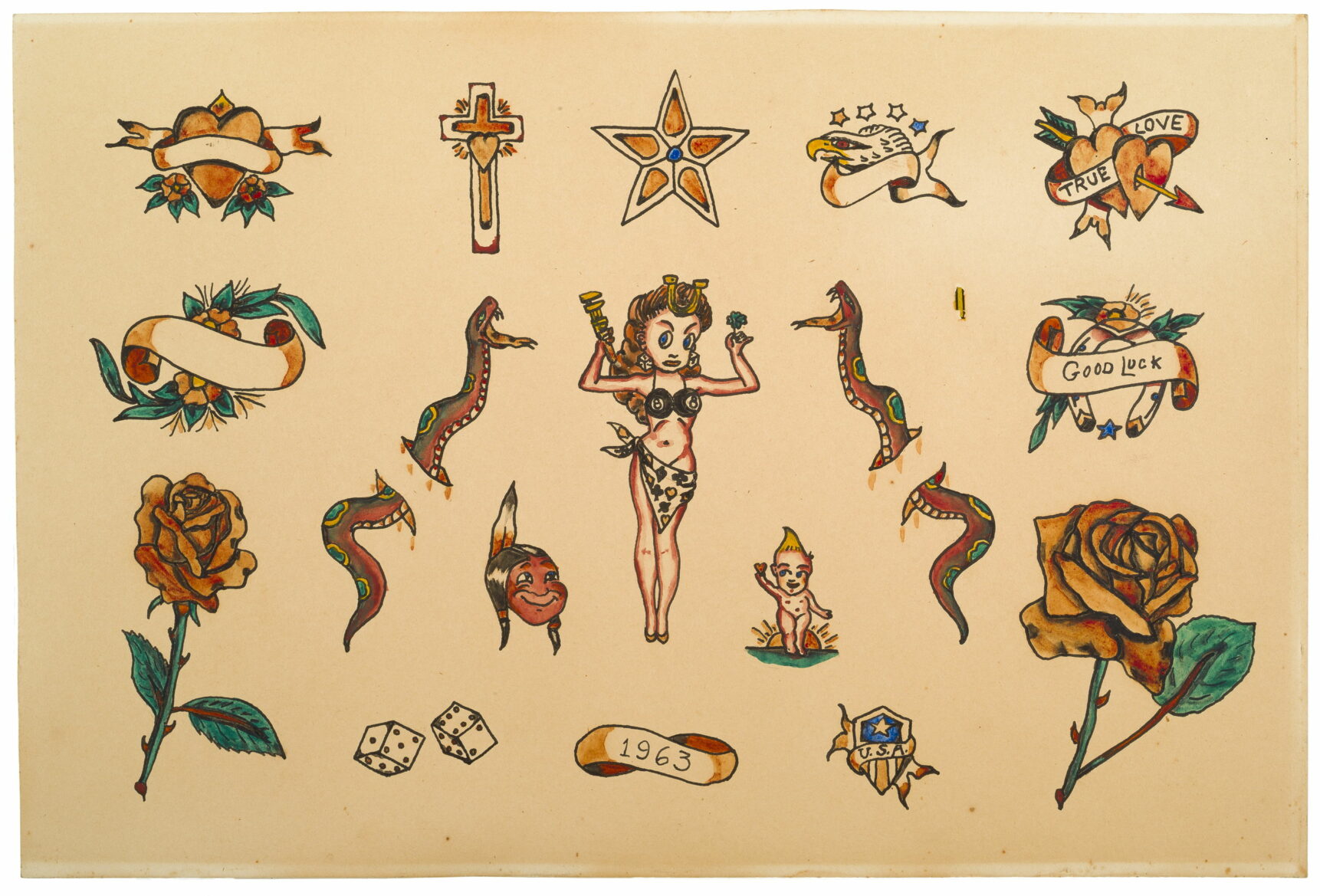 Eustis Estate
Eustis Estate
The Liberty Boys & Scollay Square
The history of tattooing in Boston is inextricably intertwined with the long, colorful life and abrupt demise of the city’s iconic Scollay Square. From their low-rent shops above and below storefronts in the Square, Ed Liberty and his sons plied their trade through the tattooing booms and busts of the Great Depression, World War II, the Cold War, and urban renewal.
Frank W. Liberty
Ed Liberty’s eldest son, Frank (1904–1956), was tattooing professionally by 1926. He opened his own shop in Scollay Square in 1931. A burly, cigar-chomping ex-wrestler who favored silk shirts, Frank tattooed on the Square until his death in 1956.
Frank sported peacock and parrot tattoos on his shoulders, the handiwork of his father, Ed Liberty.

Frank W. Liberty on the CBS Affiliate WEEI Radio Show We the People
Unidentified photographer
Boston, 1948
Image courtesy of Lillian Liberty Castell

Frank W. Liberty Tattooing
Unidentified photographer
14 Scollay Square, Boston 1951
Image courtesy of Lillian Liberty Castell
Frank Liberty repurposed a printing block that belonged to his father to create his business card, altering “E. W. Liberty” to read “F. W. Liberty.” Can you spot the racy message hidden on the card’s back? Hint: It begins, “I shall…”

Frank W. Liberty Novelty Business Cards, Boston Tattoo Studio
16 Cambridge Street, Boston
c. 1930
Collections of Derin Bray and Historic New England

Frank W. Liberty Business Card, Boston Tattoo Studio
14 Scollay Square, Boston
c. 1950
Collection of Historic New England
Ted Liberty
Ed Liberty’s youngest son, Ted (1912–c. 1976), soon followed his brother Frank to Scollay Square to begin his own tattooing career. A troubled man, Ted fell into a pattern of petty crime and feuding with his father and brothers. He left a wake of failed business ventures in Portland, Maine, and Baltimore before fleeing to Canada, where he later died in Toronto.

Studio Portrait of Ted Liberty
Unknown photographer
c. 1945
Collection of Historic New England

Capt. Ted Liberty Business Card
3 East Hastings Street, Vancouver
c. 1966
Collection of Historic New England

Ted Liberty’s Tattoo Studio Sign
Eddie Levin (1889-1968)
Baltimore, c. 1950
Oil-based enamel on board
Collection of Historic New England
Harold “Lefty” Liberty
Following World War II, Ed Liberty’s middle son, Harold (1906–1985), left a manufacturing job to join the family business. His tattooing shop, located over The Tasty, a popular burger joint, became a fixture in Boston’s Scollay Square. In October 1961, Harold learned that his shop—along with the entire neighborhood—was to be demolished to make way for the Government Center redevelopment project. Months later, the state of Massachusetts restricted tattooing to qualified physicians, effectively outlawing Boston’s tattoo shops. Harold Liberty, Scollay Square’s last tattooer, shuttered his shop in April 1962. A year later, Harold opened a tattoo shop on the front porch of his new home in Salem, New Hampshire. He tattooed there for nine years, retiring in 1973.

Harold “Lefty” Liberty Tattooing
Julian Carpenter (dates unknown)
49 Scollay Square, Boston 1958
Image courtesy of Derin Bray

Harold “Lefty” Liberty’s Electric Tattoo Machine
Unidentified maker
Probably Boston, 1920–40
Various metals
Collection of Jared Hook
The maker of this machine is currently unidentified. It is possible that they were sold by Smith & Howard, and that Ed Liberty acquired it (or the parts to make it) when he took over Frank Howard’s shop location in 1925. However, given Ed’s experience as a machinist and his reputation as a tattoo machine builder, he may be the original maker.

Frame for an Unbuilt Tattoo Machine
Previously owned by the Libertys
Unidentified maker
Probably Boston, 1920–40
Iron
Collection of Jared Hook

Harold “Lefty” Liberty’s Toolbox and Tattoo Supplies
Boston or Salem, New Hampshire, 1946-73
Various materials
Collections of Nora Liberty White and Jared Hook
Ink pigments and spare tattoo machine parts such as springs, tubes, needle bars, and coils were essential to a tattoo artist’s work.

Harold “Lefty” Liberty’s Shop Above The Tasty
Theresa Liberty (1913–1985)
Scollay Square, Boston, 1959
Image courtesy of Nora Liberty White

Harold “Lefty” Liberty at His Shop in Scollay Square
Theresa Liberty (1913-1985)
Scollay Square, Boston, 1959
Image courtesy of Nora Liberty White

“Still in Business,” Harold “Lefty” Liberty’s Scollay Square Tattoo Shop
Unidentified photographer
49 Scollay Square, Boston
18 March 1962
Image courtesy of Revolutionary Spaces
Just weeks before the last residents were evicted from Scollay Square, Harold “Lefty” Liberty was still struggling to make a living there.

Letter from the Boston Redevelopment Authority to Harold “Lefty” Liberty
Boston, dated 25 October 1961
Collection of Historic New England

Harold “Lefty” Liberty’s Tattooing Daybook
1958–70
Collection of Nora Liberty White

Massachusetts House of Representatives
Boston, 1962
Collection of Nora Liberty White

Handbill Announcing Harold “Lefty” Liberty’s New Shop in Salem, New Hampshire
1963
Collection of Nora Liberty White

Harold “Lefty” Liberty’s Tattoo Shop
Theresa Liberty (1913-1985)
Salem, New Hampshire, c. 1963
Image courtesy of Nora Liberty White

Interior of Harold “Lefty” Liberty’s Tattoo Shop
Theresa Liberty (1913-1985)
Salem, New Hampshire, c. 1963
Image courtesy of Nora Liberty White
